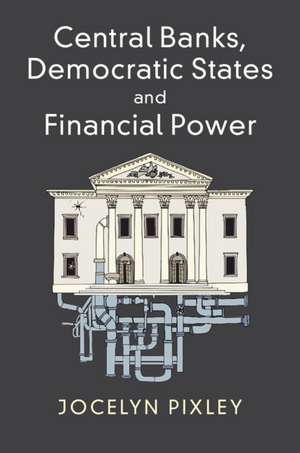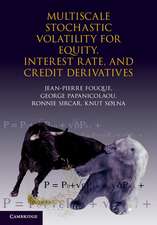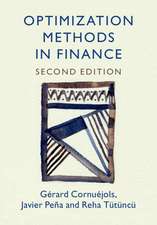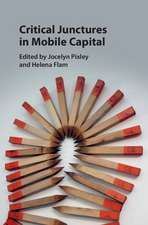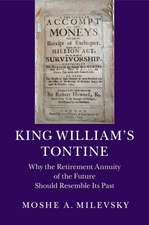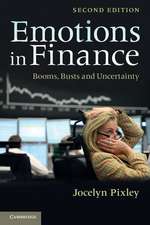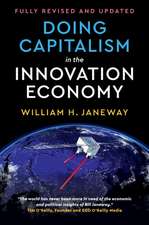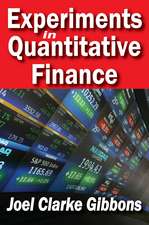Central Banks, Democratic States and Financial Power
Autor Jocelyn Pixleyen Limba Engleză Paperback – 10 oct 2018
| Toate formatele și edițiile | Preț | Express |
|---|---|---|
| Paperback (1) | 341.04 lei 38-44 zile | |
| Cambridge University Press – 10 oct 2018 | 341.04 lei 38-44 zile | |
| Hardback (1) | 739.25 lei 43-57 zile | |
| Cambridge University Press – 10 oct 2018 | 739.25 lei 43-57 zile |
Preț: 341.04 lei
Nou
Puncte Express: 512
Preț estimativ în valută:
65.26€ • 68.31$ • 54.32£
65.26€ • 68.31$ • 54.32£
Carte tipărită la comandă
Livrare economică 26 martie-01 aprilie
Preluare comenzi: 021 569.72.76
Specificații
ISBN-13: 9781107552340
ISBN-10: 1107552346
Pagini: 474
Ilustrații: 4 b/w illus. 3 tables
Dimensiuni: 150 x 228 x 24 mm
Greutate: 0.64 kg
Editura: Cambridge University Press
Colecția Cambridge University Press
Locul publicării:New York, United States
ISBN-10: 1107552346
Pagini: 474
Ilustrații: 4 b/w illus. 3 tables
Dimensiuni: 150 x 228 x 24 mm
Greutate: 0.64 kg
Editura: Cambridge University Press
Colecția Cambridge University Press
Locul publicării:New York, United States
Cuprins
1. Who wanted central banks?; 2. War finance, private banks, shared monetary sovereignty; 3. Peace finance in bankers' ramps, 1920s–1930s; 4. Central banks, democratic hopes, 1930s–1970s; 5. Vietnam War, dollar float and Nixon; 6. The great inflation scare of Phillips curve myths; 7. Pseudo-independent central banks and inflation target prisons; 8. The state of monetary sovereignty; 9. Searching for the absurd in central banking.
Recenzii
'The on-going failures of government policy makers to promote sustainable prosperity for all their citizens is sharpening public focus on the roles of central banks. Professor Pixley's study is loaded with insights into how the charters and actions of central banks can both contribute to - and frustrate - the pursuit of this ultimate policy goal.' Bernie Fraser, Former Governor of the Reserve Bank of Australia
'With her customary verve Jocelyn Pixley cuts through the mythology of central banks as truly independent expert guardians of our monetary system. Using an impressive range of disciplines and sources, including interviews with central bankers, we are taken at pace through critical periods and events in the shifting fortunes of central banks. Focussing unerringly on the essential question, Pixley explores whether central banks are inescapably torn between the conflicting demands of capitalist finance and democracy and therefore inevitably compromised. Despite the weight of evidence, we are none the less given a glimmer of optimism in a provocative conclusion.' Geoffrey Ingham, Christ's College, University of Cambridge
'Pixley has expanded our understanding of central bank origins and functioning by showing the intimate links to war finance and state formation. This is a much needed corrective to purely economic arguments about the reasons for and benefits of central bank independence.' Herman Mark Schwartz, University of Virginia
'The economic system we call capitalism, and still teach about in college courses on economic sociology, monetary macroeconomics and political economy, began in 1694 with the founding of the Bank of England. It ended 250 years later in Bretton Woods, New Hampshire. Down to WW1 the system seemed strong. Great Britain had been the hegemonic power for all that time. It was on life support in the last thirty years, 1914–44. Even before WW1, however, the seeds of destruction had been sown, for example, by the 'crime of '73' (1873), the demonetization of silver in the USA and the establishment of the international gold standard. This important book by Jocelyn Pixley takes us through all of that history. She also brings us up-to-date by treating, in some detail, the painful experiences of the past 75 years. The many analogies between the two periods are not coincidental.' John Smithin, Professor Emeritus of Economics and Senior Scholar, York University, Toronto
'Providing rich historical context, Pixley examines the origins and evolution of central banks in democratic states - particularly the Federal Reserve in the US - and their inextricable connections to other economic and political players from the early 20th century to this day, revealing the fundamentally social nature of money. … The culmination of decades of reflection and writing, this deeply knowledgeable book makes a valuable contribution not only to economic sociology but also to political economy and historical sociology, placing central banks in a rich historical context.' J. Li, Choice
'With her customary verve Jocelyn Pixley cuts through the mythology of central banks as truly independent expert guardians of our monetary system. Using an impressive range of disciplines and sources, including interviews with central bankers, we are taken at pace through critical periods and events in the shifting fortunes of central banks. Focussing unerringly on the essential question, Pixley explores whether central banks are inescapably torn between the conflicting demands of capitalist finance and democracy and therefore inevitably compromised. Despite the weight of evidence, we are none the less given a glimmer of optimism in a provocative conclusion.' Geoffrey Ingham, Christ's College, University of Cambridge
'Pixley has expanded our understanding of central bank origins and functioning by showing the intimate links to war finance and state formation. This is a much needed corrective to purely economic arguments about the reasons for and benefits of central bank independence.' Herman Mark Schwartz, University of Virginia
'The economic system we call capitalism, and still teach about in college courses on economic sociology, monetary macroeconomics and political economy, began in 1694 with the founding of the Bank of England. It ended 250 years later in Bretton Woods, New Hampshire. Down to WW1 the system seemed strong. Great Britain had been the hegemonic power for all that time. It was on life support in the last thirty years, 1914–44. Even before WW1, however, the seeds of destruction had been sown, for example, by the 'crime of '73' (1873), the demonetization of silver in the USA and the establishment of the international gold standard. This important book by Jocelyn Pixley takes us through all of that history. She also brings us up-to-date by treating, in some detail, the painful experiences of the past 75 years. The many analogies between the two periods are not coincidental.' John Smithin, Professor Emeritus of Economics and Senior Scholar, York University, Toronto
'Providing rich historical context, Pixley examines the origins and evolution of central banks in democratic states - particularly the Federal Reserve in the US - and their inextricable connections to other economic and political players from the early 20th century to this day, revealing the fundamentally social nature of money. … The culmination of decades of reflection and writing, this deeply knowledgeable book makes a valuable contribution not only to economic sociology but also to political economy and historical sociology, placing central banks in a rich historical context.' J. Li, Choice
Notă biografică
Descriere
Assesses central bank policies towards capitalist money creation and war finance against inflationary and deflationary class strengths in specific democracies.
